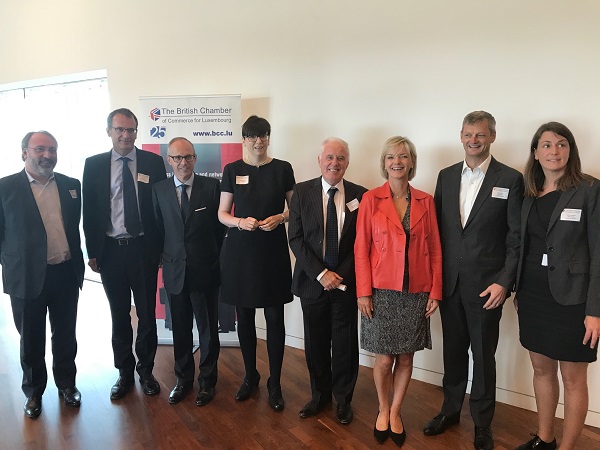
On Thursday 21 September, the British Chamber of Commerce (BCC) held their first event of the autumn at La Table du Belvedere in Luxembourg-Kirchberg.
Joanna Denton, BCC Chairman, welcomed everyone to what is the traditional "rentrée" event of the BCC after the summer holidays.
Patrick Santer, BCC Council Member, introduced the speaker, Luc Frieden, former Minister of Justice and Minister of Finance, and currently Chairman of BIL and the St Paul Group, and member of the board at various other organisations.
Speaking before the lunch, Luc Frieden addressed to 80-strong attendance on the topic of "Europe after Brexit". He said that the relationship with Britain will be different to what it us today. He emphasised the timeline involved, highlighting that there are so many aspects to be addressed - in detail - and all within a specific and short timeframe, particularly with discussions on the future not commencing until after the split gas happened.
He affirmed that many people throughout the EU are asking why they are members of the EU, with many discussing the issues openly. He described the UK referendum as involving an "impossible question to answer" as the information available was so vague. He also referred to the rebate issue...
He highlighted the main advantages of the EU as being peace, prosperity and freedom, with the EU having a stronger mandate together rather than individually.
He also addressed the issue of enlargement (of the EU), and stressed that it will be unrealistic for the EU to continue in a similar vein as before, with the remaining 27 EU Member Sates needing to be able to work together in a different way. He dismissed the concept of a two-tier / two-speed Europe as carrying too many risks, and presented his idea based on the illustration of Olympic rings, representing issues such as security in which the EU plays a central role; another ring could include the relationships with other countries, including the UK.
His views included strengthening the Eurozone being of primary importance at a European level, while fiscal and economic policies should be dealt with at national levels, within the context of fiscal reform and economic reform. He also referred to the position of the European Court of Justice, supporting its international mandate.
He said that Luxembourg should remain attractive and business-friendly, open to foreign investors and cross-border initiatives.
Overall, though, speed is of the essence in preparing the EU for after Brexit.








